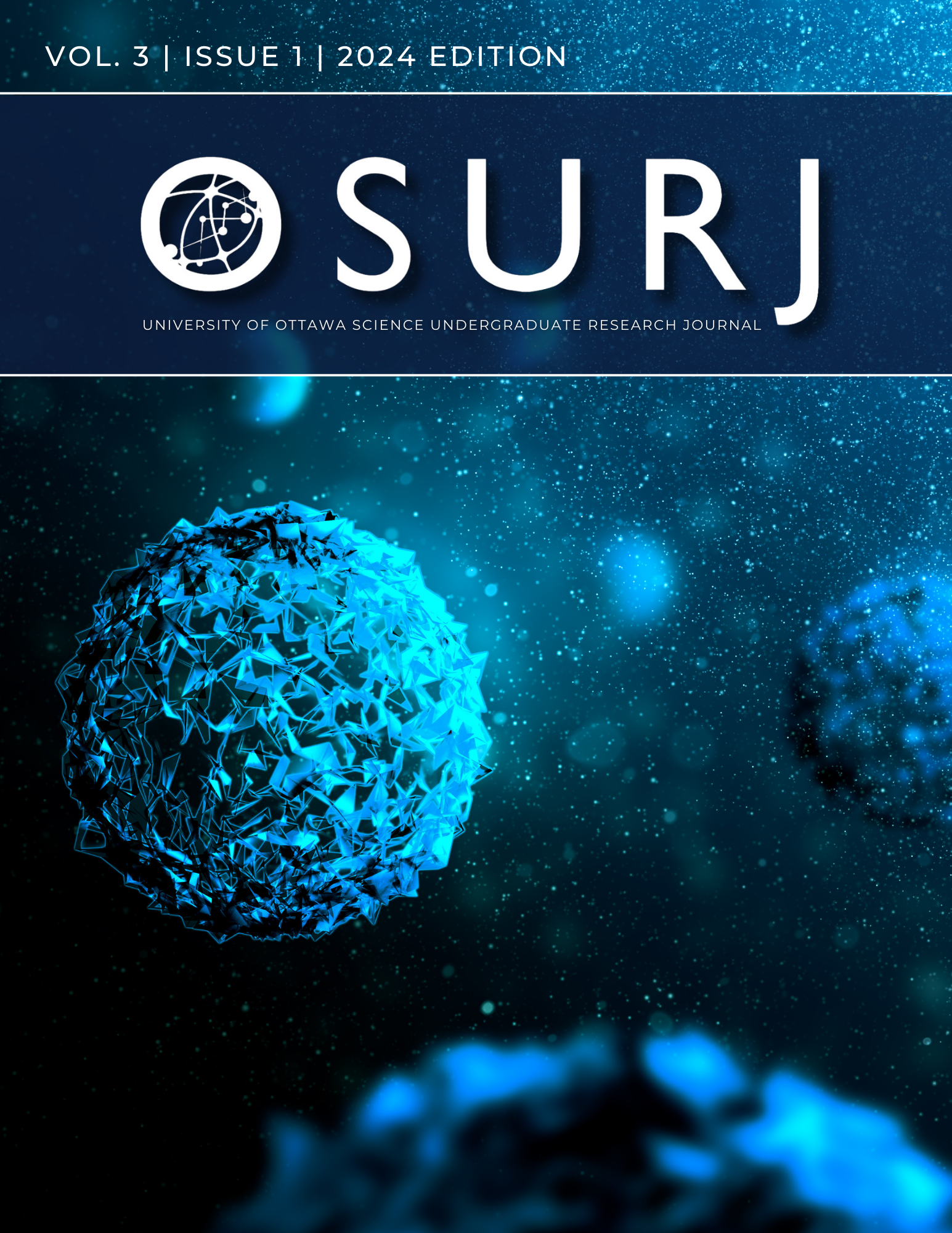Alzheimer au travers les cultures: Examiner l'impact des circonstances des communautés autochtones et des perspectives culturelles sur le traitement.
DOI :
https://doi.org/10.18192/osurj.v3i1.7164Résumé
Au Canada, on estime qu'environ 10 800 Autochtones vivent avec la démence [1], dont la cause importante est la maladie d'Alzheimer [2]. Bien qu'il n'existe pas de remède pour cette maladie, il y a toutefois des traitements pharmacologiques et thérapeutiques qui sont largement disponibles pour ces patients [2]. Alors que ces avenues de traitement ont été largement mises en œuvre au sein de la population canadienne, il y a un manque de connaissance significatif concernant l'impact des perspectives culturelles autochtones et des circonstances spécifiques de leur communauté sur l'efficacité et l'accessibilité de ces traitements [3].
Ainsi, l'étude proposée va passer en revue et consolider la littérature existante afin d'examiner jusqu'à quelle point les circonstances uniques et perspectives culturelles des communautés autochtones pourraient avoir un impact sur l'accès aux soins et influencer la perception, le diagnostic et le traitement de la maladie d'Alzheimer dans ces communautés.
Étant donné la susceptibilité générale plus élevée des populations autochtones à la maladie d'Alzheimer, en raison d'une prévalence plus élevée de facteurs de risque modifiables [4], on suppose que leurs circonstances culturelles et communautaires uniques sont corrélées à de moins bons résultats de traitement d'Alzheimer par rapport à la population canadienne générale.
La méthodologie employée par cette étude serait une revue systématique, qui serait une perspective générale, mais reproductible, sur l'état actuel de la recherche dans ce domaine et comme base pour de futures recherches.
L'étude proposée servirait à déterminer les meilleures approches et la nécessité de mettre en œuvre des soins accessibles et sensibles à la culture pour la maladie d'Alzheimer dans les communautés autochtones. Les connaissances acquises par cette étude peuvent permettre une meilleure compréhension et intégration de la perspective autochtone sous-représentée dans le système de santé canadien.
Téléchargements
Publié-e
Numéro
Rubrique
Licence
© Amro Habash, Aastha Sah 2024OSURJ Publication Rights Policy Agreement Please fill in the following blanks.
I, ____________________ (submitting author) am submitting an article to the University of Ottawa Science Undergraduate Research Journal (OSURJ) entitled _________________________________________________________________________
I. OSURJ Mandate:
The University of Ottawa Science Undergraduate Research Journal is a bilingual multidisciplinary open-access and non-proprietary journal. A journal of this nature embraces all disciplines of science and is the result of a collaborate effort between undergraduate, graduate and faculty members. Our goal is to provide invaluable publishing and submission process experience to undergraduate students and ultimately promote undergraduate research within the UOttawa community.
II. Review Process of OSURJ
OSURJ uses a single-blind review process. The submitted article is first sent to the managing editor who assigns the article to the relevant section editor responsible for the specific science discipline. The section editor provides a preliminary review to confirm that the submission is within OSURJ’s scope after which it is assigned to one undergraduate reviewer and one faculty review for independent review. The reviewers recommend to either reject, accept or conditionally accept the article with revisions required. Based on the recommendations from both reviewers, the section editor makes the final decision of publication.
III. Proprietorship and Author Rights:
Authors retain all copyrights to their research and original data and may publish in other journals at the journal’s discretion. OSURJ acknowledges that all information submitted by the author(s) is their intellectual property and therefore any republication of such property is not allowed without written consent from the submitting author(s). Articles published in OSURJ may be published in other journals.
However authors should be made aware that other publishers may not permit the republication of original research published in an undergraduate journal such as OSURJ. Consequently, the author should consult the publication policies of other journals, and all relevant parties should be made aware of this possibility before proceeding with article submission.
IV. Falsification of Data
Methods for the acquisition and analysis of data should be accurately and fully displayed to allow for replication by other researchers. Data fabrication and alteration is unethical and may lead to unfounded conclusions. As such, it is not permitted by OSURJ.
V. Permission from All Contributors:
Given that research is collaboratively conducted with professors and other students, OSURJ requires that all contributors (co-authors, primary investigators, lab managers, supervisors) consent to the submission of the article to OSURJ.
Any person listed as an author of an article must have contributed greatly to the data, analysis or interpretation of said data and should provide approval of the submitted version. It is unethical to not list those who contributed to the standards of an author and to include those who do not meet the criteria for authorship.
For articles with multiple authors, primary, secondary (etc.) author status must also be agreed upon.


